UW looks to end embattled gender studies degree
The university will recommend axing its Gender and Women’s Studies major this week, though courses will remain. Alumni, and a former director, say the program inspired inquiry and empathy.
The University of Wyoming will likely terminate its Gender and Women’s Studies (GWST) degree track today or tomorrow, cancelling a bachelor’s program that right-wing state lawmakers have attacked for years.
Simultaneously, the School of Culture, Gender & Social Justice which houses the GWST degree will be restructured as the Department of American Cultural Studies. Gender studies courses, and a GWST minor, will remain.
But cancelling the four-year degree track represents the end of an era to former program director Cathy Connolly.
“Students’ education and educational opportunities will be severely limited,” said the now-retired professor. “Our students have gone on to prestigious jobs and positions in Wyoming and elsewhere. It also illustrates the university’s lack of ability or interest in fighting for its programs when challenged.”
As the Wyoming Senate floor hosted debates about indoctrination and “wokeness,” the Gender and Women’s Studies program was graduating future lawyers and government leaders, who say the GWST courses they took at UW prepared them to critically question the world around them.
Kenna Skoric, a 2020 graduate now pursuing a master’s degree in the U.K., said the courses she took “fundamentally changed” the way she saw the world.
“I have always said my GWST degree prepared me for my career and personal life better than any other program, course, class, or experience,” she said. “None of my other education has ever been as thorough, intrinsic, or applicable in my career or life in general.”
UW has identified the GWST degree alongside four others, including African American and Diaspora Studies, as “low-producing” programs that have failed to graduate enough recent majors to justify their existence.
According to figures provided by Interim Provost Scott Turpen, GWST has produced 17 graduates in the last five years. African American and Diaspora Studies has produced three.
Turpen said the recommendation to close GWST did not stem from lawmaker attacks on the course content and was not tied to related efforts to eradicate diversity programming at UW.
“The University regularly evaluates degree and course offerings to ensure there is adequate student demand,” Turpen said in an emailed response to a list of questions. “This academic unit began these discussions almost two years ago, when I was serving as dean of the [Arts & Sciences] College, based on low student enrollment and interest by their faculty to simplify their program offerings.”
Connolly, who also served as a Democratic state lawmaker, said UW leadership left the program “starved of resources” while legislative attempts to kill it became perennial.
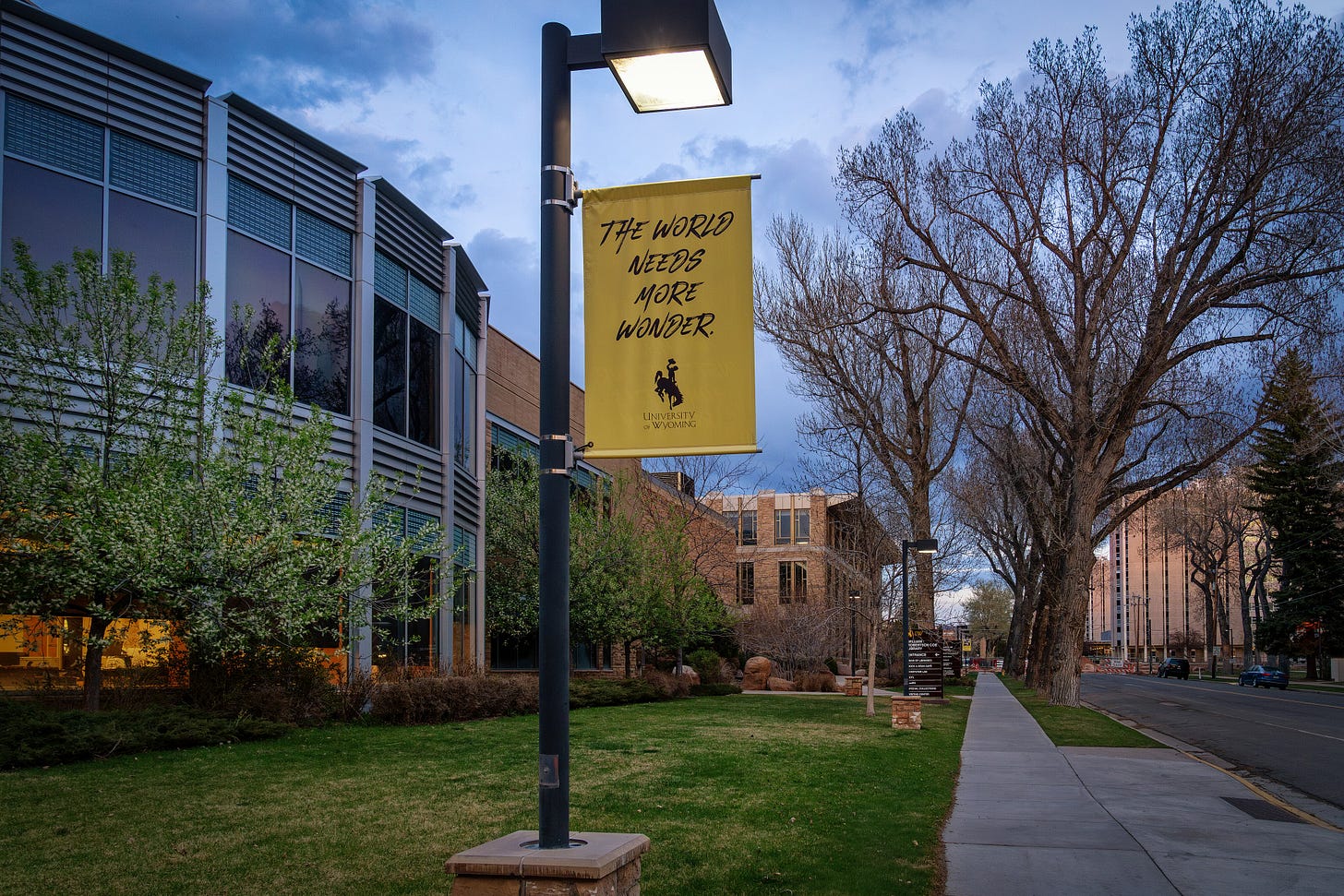
“The limiting of resources that has happened within GWST has happened elsewhere as well and those units no longer permit their faculty to also support GWST. This has been happening for years,” Connolly said. “Thus, without line faculty or regular sustained support from other units, GWST cannot offer [as many] classes, thus our student counts are lower.”
Gender and Women’s Studies is interdisciplinary, often crossing into law, sociology, political science and more. As such, many of the instructors who have taught under its banner actually hail from other departments on campus, or else split their time between departments.
Connolly said most students don’t come to UW looking to be a GWST major, but find their way to it via the program’s introductory class or a cross-listed course.
If UW gives students fewer opportunities to fall in love with gender studies — and it has, Connolly said — it will inevitably lead to fewer declared majors and render the program “low-producing.”
Several alumni confirmed they did not come to UW with Gender and Women’s Studies in mind, but got hooked by an elective course they happened to take. Sometimes, it was the “eye-opening” content itself that grabbed them. Other times, it was a connection with one of the unit’s instructors and their particular field of research.
“I took an intro course as a sophomore and it opened up my world,” said 2014 graduate Melanie Vigil, who is today an assistant dean of students at UW and a Laramie City Councilor. “I would go home after class and do extra reading, and our class discussions inspired me to explore the world in a way that I didn’t realize was possible as a young woman who grew up in a rural Wyoming town.”
Like Vigil, several other alumni said they simply took a course that looked interesting and found themselves enticed by a program alive with academic inquiry.
The Gender and Women’s Studies and African American and Diaspora Studies degree programs are housed in UW’s School of Culture, Gender & Social Justice.
The school’s leader, Associate Professor Stephen Dillon, said there’s no single reason for the degree eliminations.
It’s true that gender studies has caught the ire of Wyoming’s right-wing, he said. It’s also true the number of awarded degrees has fallen, long-time UW faculty have retired or moved elsewhere, and university-wide enrollment is plummeting.
“It just feels to me like it’s not that clean-cut [answer] of: ‘The repressive government got rid of a program,’” Dillon said. “At the same time, would it help gender studies if the government was like, ‘We support gender studies and we want it to exist and we see the value of it for medicine and law and public policy and social work and all these fields?’ Obviously, that would help.”
But Dillon said he and other faculty are cautiously excited for the future. Gender studies will persist as a minor available to American Studies majors. So will African American and Diaspora Studies. Pulling those fields into the same degree track might even allow for easier multi- and cross-disciplinary education.
But several alumni see eliminating the Gender and Women’s Studies major as primarily a capitulation to the right-wing activists who have attacked it for years.
“Cutting this program signals that topics like gender, inequality, and social justice aren’t worth exploring academically, which is a dangerous and frankly regressive message to send,” Skoric said. “Rather than eliminating these kinds of programs, universities should be championing them as essential to a well-rounded, future-facing education.”
UW administrators will recommend the four-year degree’s termination at the Board of Trustees meeting today. The board will be tasked with deciding the fate of GWST and the four other degrees currently on the chopping block.
There are no students currently pursuing an African American and Diaspora Studies degree, but students pursuing a bachelor’s degree in GWST will be allowed to complete it before the program is officially shuttered.
Who’s afraid of gender?
Right-wing lawmakers, especially those in the Wyoming Senate, have tried repeatedly to eradicate gender studies from UW.
In both of the state’s last two budget sessions, Torrington Sen. Cheri Steinmetz (SD-3) has tacked an amendment onto UW’s portion of the state budget forbidding the institution from hosting gender studies courses.
While other legislative proposals targeting the university go after funding, or make efforts to intentionally target “advocacy” rather than classroom discussion, Steinmetz’s proposed legislation directly prohibited the curriculum itself, labeling the topic of gender studies itself out of bounds.
“I don’t believe it’s the right position for the university to take sides on this issue and put forth more of an ideology than a program,” Steinmetz said in 2024, as she put forth her amendment.
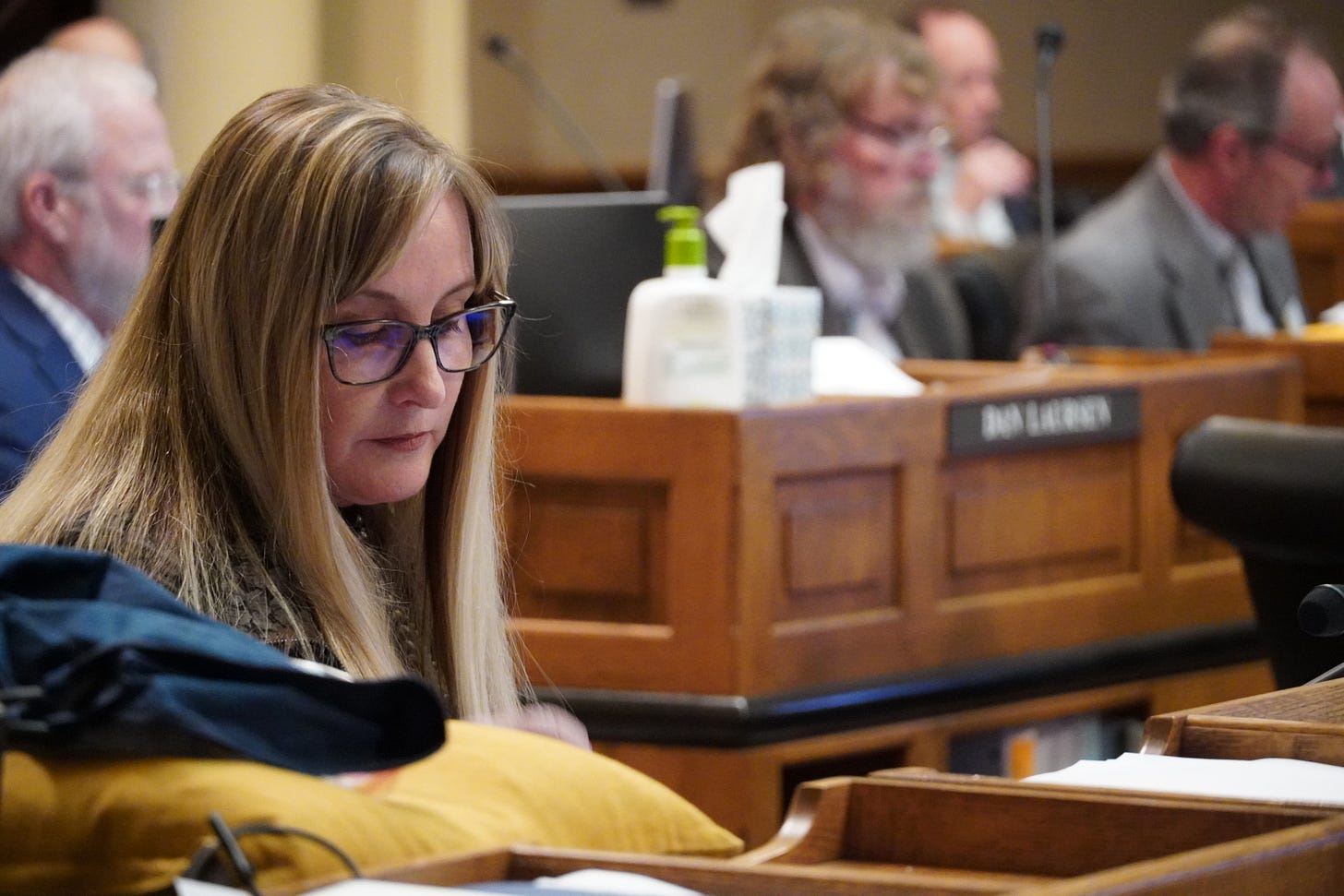
Several senators, including both Steinmetz and Ranchester Sen. Bo Biteman (SD-21) said their constituents didn’t want any of UW’s block grant supporting courses they disapproved of.
“I have some cowboys back home that have some pretty colorful language when it comes to this that I won’t repeat on the Senate floor,” Biteman said in 2024. “But this is one area where they’re saying, ‘Come on guys, what are you doing here?’ This is Wyoming. Are we going to change our mascot to the Social Justice Warriors? Because that’s where we’re going with this university. And they’re begging us to rein this in.”
In both 2022 and 2024, the Senate approved Steinmetz’s amendments. But in both years, the House refused to accept them. The amendment has not been included in any budget bill that has hit the governor’s desk.
The state government’s attack on gender studies was indicative of a wider, global push to peel back transgender, reproductive and other rights, according to scholar Judith Butler, who discussed Wyoming and its university in their most recent book, Who’s Afraid of Gender?
The 2024 book explores the difficulty of communicating the value, or even the reality, of gender studies with opponents who refuse to engage with its ideas and who believe engaging with the topic is spiritually corrupting.
“It seems we are not in a public debate at all, precisely because there is no text in the room, no agreement on terms, and fear and hatred have flooded the landscape where critical thought should be thriving,” Butler writes. “It is a phantasmatic scene.”
While attempts to ban gender studies in Wyoming have failed, attempts to eliminate diversity-oriented programs have succeeded. A new law taking effect this summer prohibits instructors from “promoting” certain ideas; while UW is emphatic that the new law does not hinder academic freedom, education advocates have warned the legislation could have a “chilling effect” on classroom discussion.
Connolly said the proposed termination of the GWST degree aligns with Steinmetz’s vision for UW, and “illustrates” that the university is either unwilling or uninterested in defending its program.
“UW did little to stop misinformation,” Connolly said. “As the years went on, the legislature piled on, leading ultimately to where we are today.”
What is gender and women’s studies?
According to UW’s own promotional material, students pursuing a Gender and Women’s Studies major gain “critical historical perspectives to better understand and investigate the complex role gender plays in contemporary civic life and public policy debates.” The courses that support that major teach students to “apply intersectional feminist and gender studies analyses to cultural histories, literature, the arts, and socio-political power relations.”
Connolly said her classrooms were places where students had their assumptions challenged.
“What all our courses in GWST strive to do is have our students think,” she said. “Sometimes we present new information, other times we ask our students to examine received wisdom. I’ve had the wonderful experience in the classroom when students have been excited by or aghast at new information, and deeply challenged when examining what had been ignored in the past.”
Connolly said Gender and Women’s Studies put “questions of sex, gender and sexuality at the center of analysis.”
“It is interdisciplinary, most often drawing on the social sciences and humanities, but also art and the sciences,” she said. “Its roots as an academic discipline in the United States can be traced to the 1960s/70s with the recognition that women were often ignored or relegated to the margins of many existing academic programs.”
With a background in sociology, Connolly guided her students as they examined everything from healthcare to crime to societal expectations — and how sex and gender pervade those topics in complicated ways.
“This exercise has often been profound for students as they then examine what is around them,” she said. “Our students become adept with critical thinking skills to not simply accept what is presented to them but to question how the information and its meaning has come about.”
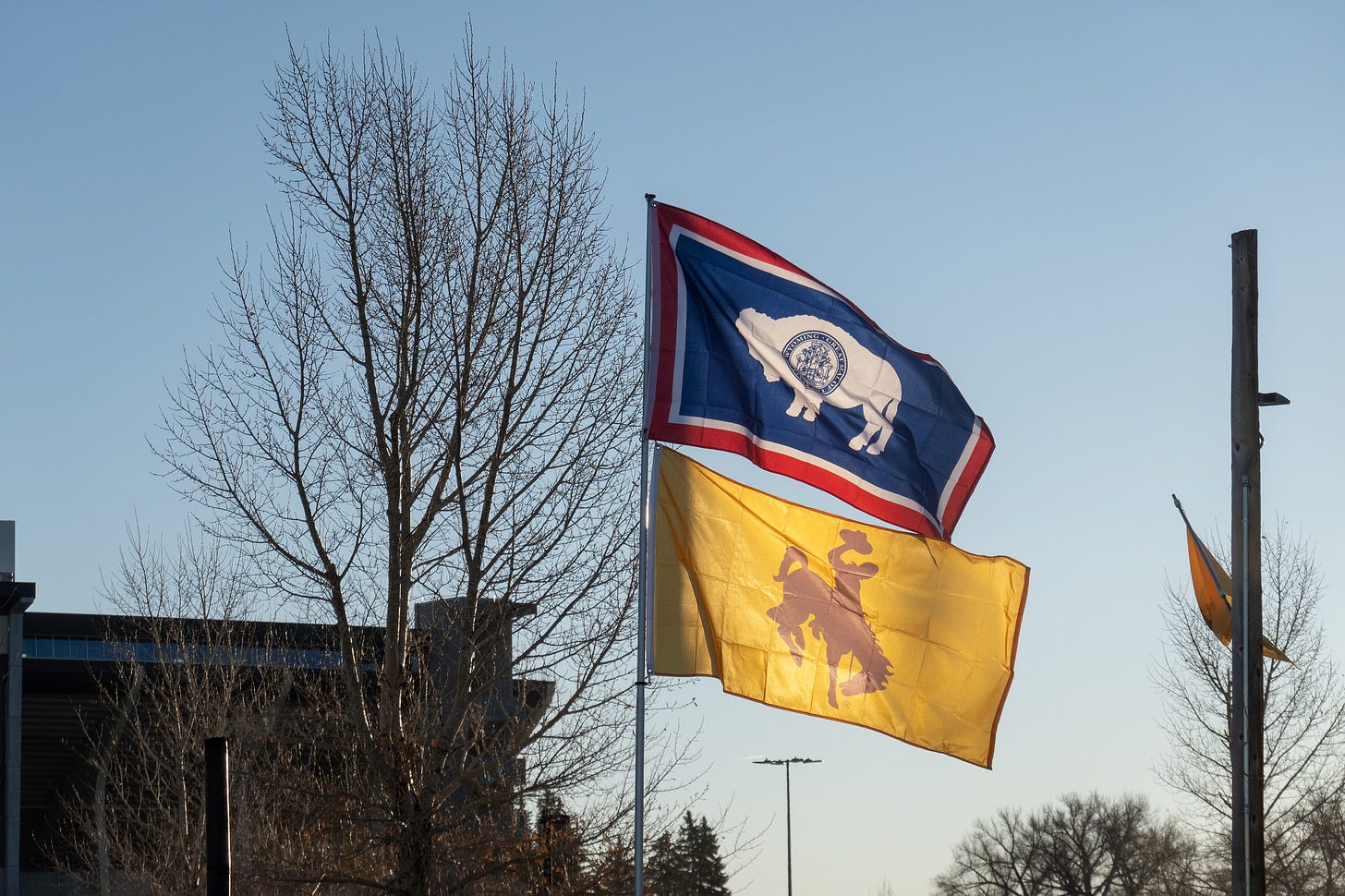
Sharing faculty and courses with other departments on campus, the GWST program has given students from other disciplines new frameworks for analyzing topics in political science, sociology, law, English and other realms.
Riley Talamantes, a 2021 graduate, said her GWST major buttressed her other major, political science, by giving her these new analytical frameworks. Such frameworks are known as “lenses” in academia, and Talamantes said they are useful tools for understanding the world from a variety of perspectives.
“I think these classes really open up students’ minds, help them get a really holistic, humanity-centered education that I think can be applicable to any degree, even if it's a scientific one,” she said. “I think they help students become empathetic people, that they help students see historical injustices so that they don’t get repeated. I think they help students become leaders in the everyday.”
“Lenses,” and the critical theories they support, are often misunderstood.
In scholarly research, one might use a Marxist, feminist or other critical theory lens to consider the power dynamics at play in some historical or contemporary topic. For example, a scholar could examine minimum wage law through a Marxist lens (by considering its implications for the relationship between labor and capital), or through a feminist lens (by considering the disparate impacts that a low minimum wage has on women and mothers). Critical race theorists, queer studies scholars and disability studies scholars could apply their own lenses to the same topic, each providing insights that could otherwise be missed.
The presence of words like “Marxist,” “feminist,” and “queer” have been met with derision from Steinmetz and others, while “critical theory” and “critical race theory” have become buzzwords on the modern American right, deployed to malign a wide range of perspectives both inside and outside of academia.
While these lenses do allow for radical reinterpretations of the historical record, Talamantes said she was never pressured to adopt them as an all-encompassing ideology.
“I think really what [my instructors] were just trying to demonstrate pedagogically was: ‘Here’s some of the historical mistakes and wrongdoings that our country has done to certain groups of people,’” she said. “I think all of the professors that I had in this program are very intentional with how they challenge students with their critical thinking.”
But that’s not how these courses are described on the Senate floor or in the legislative committee hearings that determine the exact language of new laws.
According to Steinmetz, courses offered by UW’s Gender and Women’s Studies program “promote an ideology.” This sentiment was echoed by her allies in the Senate, and it mirrors right-wing arguments about the aim of diversity programs.
The new anti-DEI law taking effect this summer specifically prohibits instructors from “promoting” certain ideas. The view from Cheyenne is that students in Laramie are being indoctrinated into “woke” ideologies.
That view is “dead wrong” according to GWST graduate Austin Morgan, and has “no factual basis,” according to Connolly. As Butler notes in Who’s Afraid of Gender?, there is no “gender studies” or “gender” ideology.
“Opponents of gender portray gender advocates as dogmatic, or insist that we are critical of their authority, but never of our own beliefs,” they write. “And yet gender studies is a diverse field marked by internal debate, several methodologies, and no single framework.”
Kenna Skoric, the 2020 graduate now living in the U.K., said claims of indoctrination simply don’t reflect the discussion-heavy, curiosity-inspiring courses she took at UW.
“From my perspective, labeling this degree program as indoctrination is a lazy attempt at trying to quell a perceived threat,” Skoric said. “And these people must see this educational program as a threat, which is both sad and laughable.”
Butler argues the problem is deeper still; opponents of gender studies label it an ideology in order to implement their own “doctrine.” Writing specifically about Steinmetz’s 2022 amendment to ban gender studies at UW, Butler concludes:
Those making allegations about indoctrination … who make allegations of ideology under the rubric of “woke,” are interested in maintaining doctrinal control in education, very often allying with parental rights over public education. The allegation of indoctrination carries a fugitive form of confession. They want to quash critical thought in the name of doctrine, and, by way of an inadvertently confessional projection, assume that their adversaries want the same.
Does gender studies have a future at UW?
As gender studies programs across the country come under attack — and even as declared majors are falling — the classes themselves have seen a surge in popularity.
Stephen Dillon, the head of the School of Culture, Gender & Social Justice, said UW has seen the same trend.
“The degrees are low-producing, but the courses are actually packed,” he said. “Intro to Gender Studies and Intro to African American Studies are always packed. But that’s not leading to people majoring in those degrees.”
The popularity of courses does not factor into the decision to keep or cancel a degree offering, but it does influence whether those courses will continue.
GWST courses, which remain very popular even at UW, will continue.
“While there may be the elimination of some courses, it is not the direct result of eliminating these degrees,” said Interim Provost Scott Turpen. “Academic units routinely review curriculum and may eliminate courses due to factors like student demand. There will still be courses in Gender and Women’s Studies offered for students who chose to enroll in them.”
As the UW trustees weigh the degree cancellations, they will also consider a name change for Dillon’s school that would rechristen it the Department of American Cultural Studies.
Students will be able to minor in gender studies or African American and Diaspora Studies or a number of other parallel disciplines while majoring in the department’s most popular degree track: American Studies.
“American Studies is an interdisciplinary field that centers race, gender and sexuality in the study of American culture,” Dillon said. “American Studies scholars study music and film and literature and history. But often those things are deeply mixed. The work might look like a queer theorist and a literary scholar and a historian all mashed up. They’re kind of combined, and that’s the interdisciplinary part. You might be doing historical, theoretical and cultural work in the same moment, or same project, or same course.”
Dillon is hopeful that the restructuring of his academic unit will support the interdisciplinary nature of gender studies, American studies and the rest.
“The faculty in the school are excited about this next phase,” he said. “It’s a challenge, but also it’s something that’s going to allow us to do new and exciting things and if anything, actually provide a more updated curriculum for our students … There’s this mixture of sadness but also excitement.”

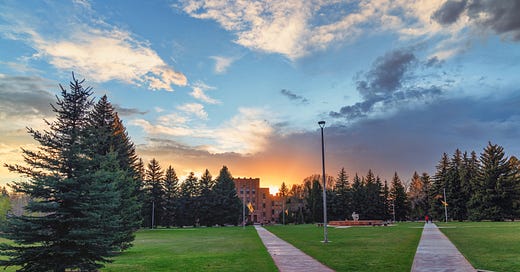



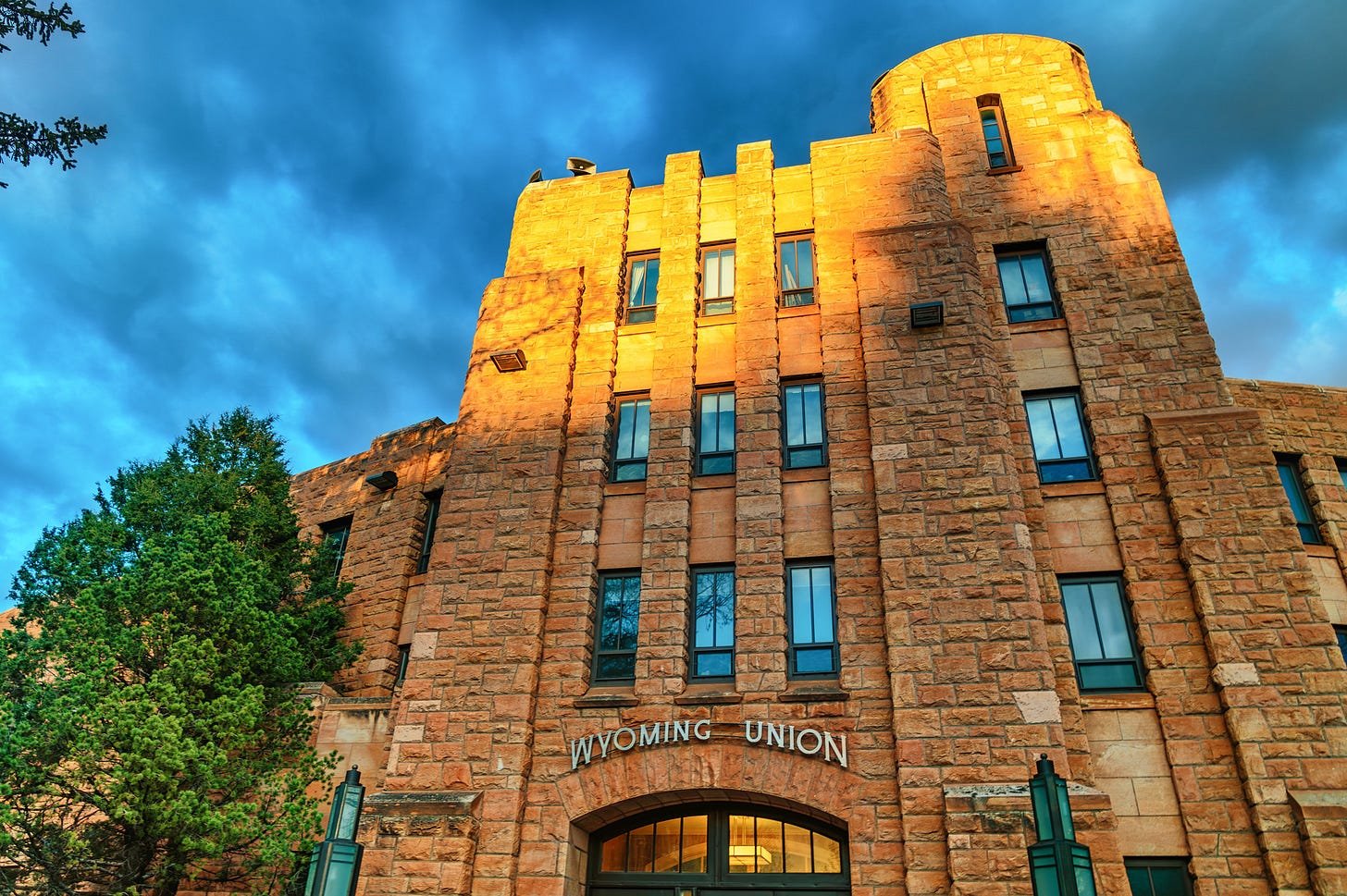

Endless examples of failed leadership at UW, but they still have to spend millions to recruit students to a school that wants to stand for nothing instead of just looking in the mirror.
And, those 'cowboys' that Biteman mentions are as authentic as his Wyoming values which he brought from Michigan two minutes ago to immediately run for office.
As a parent of a UW student who will graduate this weekend with a BA in Gender and Women's Studies, I am disgusted by the administration's capitulation to the anti-intellectual freedom caucus. While the official reasoning may be low graduation rates, this is likely brought about by lack of funding and support for the department. Do the UW administration and trustees understand what they are encouraging/enabling? Surely they are aware that this will not be sufficient for the freedom caucus. Unfortunately, because UW has shown again (last year it was preemptively getting rid of the DEI office) that it is ready to bow to caucus demands, we should be prepared for even more state government control of our University. UW should be ashamed.
Thank you, as always, for your thorough reporting.